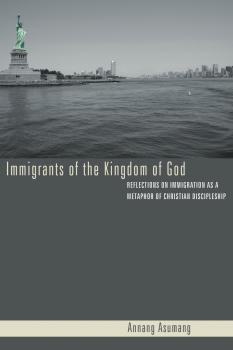ТОП просматриваемых книг сайта:
Annang Asumang
Список книг автора Annang AsumangАннотация
While the intensely captivating language of the Epistle to the Hebrews may stir and invigorate modern New Testament readers to renewed spiritual energy, readers often remain clueless as to the book's overall theme and message. Despite the tendency for preachers to use various verses of the book of Hebrews as proof texts, few preachers today systematically expound the passages of Hebrews so that its general thesis is more clearly understood, so that it is practically applied for daily Christian living and witness. The different proposals about the epistle's uniting argument have not resulted in scholarly consensus; neither have they diminished the common impression about the epistle's difficulty. For such an important book of the Bible, given that the book of Hebrews skillfully bridges our understanding of the two testaments into one whole, such a situation is, to say the least, unsatisfactory.
The Epistle to the Hebrews utilizes the language of spaces in its expositions and the language of movement in its exhortations, with powerful rhetorical effects; yet few studies have attempted to analyze the book from this perspective. In this study, Asumang employs models from the interdisciplinary social-science investigative methodology of spatiality to analyze Hebrews. He demonstrates that the author of Hebrews interpreted the migrating camp of the Israelites in the wilderness, depicted in the book of Numbers, through a Christ-tinted lens and that the Hebrews writer applied these lessons to the grave pastoral condition of his congregation. When examined from this perspective, the Epistle to the Hebrews proves to be a most potent recipe for spiritual formation and Christian discipleship today.
The Epistle to the Hebrews utilizes the language of spaces in its expositions and the language of movement in its exhortations, with powerful rhetorical effects; yet few studies have attempted to analyze the book from this perspective. In this study, Asumang employs models from the interdisciplinary social-science investigative methodology of spatiality to analyze Hebrews. He demonstrates that the author of Hebrews interpreted the migrating camp of the Israelites in the wilderness, depicted in the book of Numbers, through a Christ-tinted lens and that the Hebrews writer applied these lessons to the grave pastoral condition of his congregation. When examined from this perspective, the Epistle to the Hebrews proves to be a most potent recipe for spiritual formation and Christian discipleship today.
Аннотация
Immigration has in recent years become a hotly contested subject in public political and social discussions. Both in Europe and America, there is increased polarization, confusion, and anxiety about how to handle this challenging phenomenon. What has not been adequately discussed during these debates, however, is the influence of immigration on religion in the host countries. The increase in the number of Moslem immigrants in the West has been raised in some publications. However, this book is among the first to examine the impact of immigration on the Christian faith from a biblical perspective.
The fact is, in many Western countries today, the future of Christianity is progressively becoming dependent on immigration. Is there any biblical perspective to the phenomenon? What should be the response of Christians to the debate? And how should Christian immigrants themselves interpret their experiences in the light of the Word of God? Asumang examines the lives and experiences of the giants of the Bible to answer these questions. And his conclusions are insightful and challenging both to immigrant and non-immigrant Christians alike.
The fact is, in many Western countries today, the future of Christianity is progressively becoming dependent on immigration. Is there any biblical perspective to the phenomenon? What should be the response of Christians to the debate? And how should Christian immigrants themselves interpret their experiences in the light of the Word of God? Asumang examines the lives and experiences of the giants of the Bible to answer these questions. And his conclusions are insightful and challenging both to immigrant and non-immigrant Christians alike.


